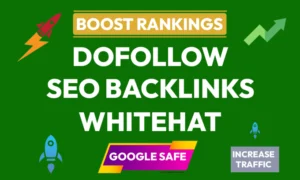Types of Keywords in Digital Marketing
Keywords are the foundation of every successful digital marketing strategy. They connect search intent with relevant content, helping brands reach the right audience. Understanding the types of keywords in digital marketing is essential to improve SEO, PPC campaigns, and overall content visibility.
1. Short-Tail Keywords
Short-tail keywords are general and contain one to two words. They drive high search volume but also high competition. For example, “digital marketing” or “SEO services” are short-tail keywords. They are excellent for brand awareness but may not deliver targeted traffic.
2. Long-Tail Keywords
Long-tail keywords are more specific phrases, usually containing three or more words. They target niche audiences and have lower competition. Examples include “best digital marketing agency for startups” or “affordable SEO packages in India.” These keywords attract users with clear intent, improving conversion rates.
3. LSI Keywords (Latent Semantic Indexing)
LSI keywords are conceptually related terms that help search engines understand content context. For example, for the keyword “digital marketing,” related LSI terms can be “online promotion,” “content marketing,” or “social media strategy.” Using LSI keywords enhances SEO relevance and boosts ranking potential.
4. Branded Keywords
Branded keywords include the name of a company or product. For instance, “Nike shoes” or “Apple iPhone 15” are branded keywords. They are used to attract users already familiar with the brand, increasing brand authority and trust.
5. Non-Branded Keywords
Non-branded keywords are generic search terms not related to a specific brand. For example, “running shoes” or “smartphones under $500.” These keywords help businesses reach new audiences and improve organic visibility.
6. Geo-Targeted Keywords
Geo-targeted keywords focus on specific locations to attract local customers. Examples include “digital marketing agency in Dehradun” or “SEO expert near me.” These are vital for local SEO strategies and help drive foot traffic to physical stores.
7. Product Keywords
Product keywords describe a particular item or service a business sells. For instance, “organic skincare cream” or “wireless Bluetooth headphones.” These keywords target users ready to make a purchase, improving sales and ROI.
8. Customer-Defining Keywords
Customer-defining keywords identify specific audience types. Examples include “digital marketing course for beginners” or “SEO tools for agencies.” They help tailor content to the target audience’s demographics and needs.
9. Competitor Keywords
Competitor keywords target search terms used by rival brands. Analyzing and optimizing for these can help businesses outperform competitors. Tools like SEMrush or Ahrefs can identify such valuable opportunities.
10. Negative Keywords
Negative keywords are terms you exclude in paid advertising campaigns. For example, if you sell premium products, adding “free” as a negative keyword prevents irrelevant clicks. This strategy ensures better ROI by focusing on qualified leads only.
11. Transactional Keywords
Transactional keywords indicate a strong buying intent. Words like “buy,” “order,” “discount,” or “coupon” signal that the user is ready to purchase. Including these in PPC ads or product pages boosts conversions significantly.
12. Informational Keywords
Informational keywords are used by users seeking knowledge rather than products. Phrases like “what is digital marketing” or “how SEO works” attract traffic through educational content and blog posts.
13. Navigational Keywords
Navigational keywords are used when users look for a specific website or platform. For example, “YouTube login” or “Facebook ads manager.” These are important for branded search optimization.
14. Seasonal Keywords
Seasonal keywords appear during specific times of the year. For instance, “Christmas sale offers” or “Black Friday deals.” Optimizing for these during peak seasons helps brands capture high-intent traffic quickly.
15. Intent-Based Keywords
Intent-based keywords focus on the user’s purpose—whether it’s informational, navigational, or transactional. Understanding search intent helps create more relevant content and improves overall user engagement.
Conclusion
Keywords play a crucial role in shaping every digital marketing campaign. By combining short-tail, long-tail, LSI, and intent-based keywords, marketers can attract the right audience and boost visibility. A well-balanced keyword strategy ensures sustainable growth, better ranking, and improved conversions.




